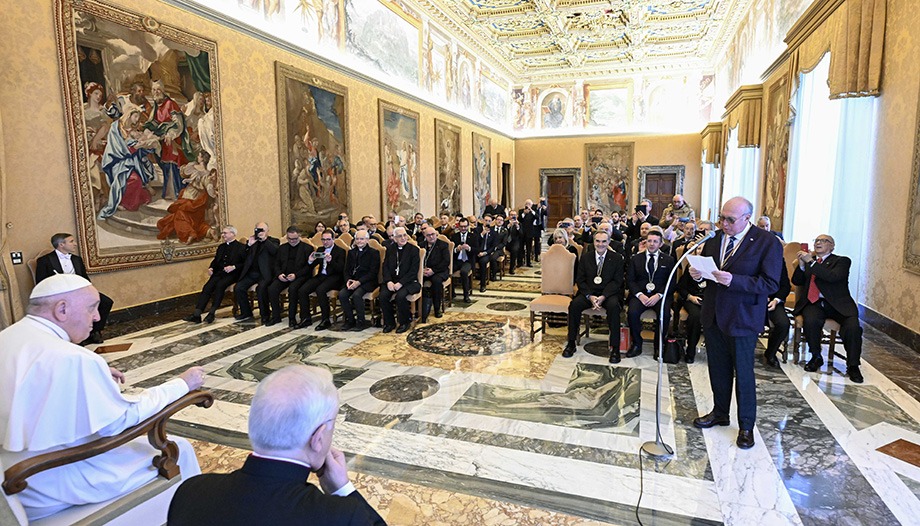On January 16, the Pope Francis received at the Vatican representatives of the Confederation of Confraternities of the Dioceses of Italy. This organization was founded in the Jubilee Year 2000 and projects itself towards the year 2025, when the next Jubilee will be celebrated.
In Italy, it currently has about 3,200 realities (there are as many confraternities in the country that are not registered in this association) and two million members.
History of the Brotherhoods
The experience of the Confraternities has a very ancient history, beginning around the 8th century with the equal participation of consecrated and lay people.
Long before the first religious orders were established, many Confraternities were already practicing works of charity and mercy, and working to increase public worship and popular piety.
The 14th century saw a new development with the creation of the Companies of the Body of Christ and of Mercy, and later those of Charity and of Divine Love, which founded hospitals and shelters for the needy. At this time, practically all the religious orders created Confraternities.
In the 16th century an evolution took place with the appearance of the archconfraternities; they were part of a network of confraternities, performed more pious works and various obligations, and enjoyed greater indulgences.
In later centuries, when the phenomenon of the missions developed, the Brotherhoods developed in new countries, where they represented works of evangelization.
During the Napoleonic era, almost all the confraternities were suppressed and their property confiscated. Only those with a purely religious character managed to survive.
In Italy, in the 19th century, confraternities that had a charitable purpose were distinguished from those that had a cultic purpose; confraternities that performed charitable works came under the control of the state authority.
An 1890 law confiscated all wealth-generating assets of all confraternities for worship purposes, leaving only the oratories and churches, and suppressed the charity offices and the charity congregation.
As already mentioned, in the year 2000 a reform desired by Pope John Paul II took place, which established the Confederation of Confraternities of the Dioceses of Italy. This reality of the Church thus had official recognition with the new century, protected by ecclesiastical authority.
In Europe, the brotherhoods are developing with significant numbers not only in Italy but also in other countries, with an overall volume of 27,000 confraternities and more than 6 million members. The most impressive presence is in Spain (13,000 with more than three million members).
The words of Pope Francis
In his meeting dedicated to this reality of the Church, the Pope referred to the Second Vatican Council on the theme of the presence of the laity in the Church "called by God to contribute, almost from within as leaven, to the sanctification of the world".
In the context of the new evangelization," the Pope said, "popular piety constitutes a powerful force of proclamation that has much to give to the men and women of our time. I encourage you to cultivate with creative and dynamic commitment your associative life and your charitable presence, which are founded on the gift of the Baptism and imply a path of growth under the guidance of the Holy Spirit. Let yourselves be animated by the Spirit and walk".
The Pope's invitation to the confraternities was to articulate their path around three fundamental lines: gospel, ecclesiality and missionary spirit.
This indication means: to walk in the footsteps of Christ by cultivating daily listening to the Word of God, reading each day even a small piece of the Gospel, and the centrality of Christ in one's own life in an intense life of personal and liturgical prayer; to walk together through community moments of fraternal dialogue, formation, discernment and deliberation and a living contact with the local Church; to walk announcing the Gospel, giving witness to one's faith and caring for the brothers, especially for the new poverties of our time.
At the end of his speech, Pope Francis addressed the representatives of the confraternities with affectionate words, renewing his invitation to them "to be missionaries of love and of the tendernessmissionaries of the mercy of God, who always forgives us, always waits for us and loves us so much".









